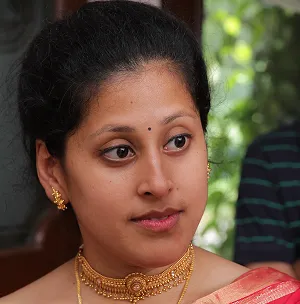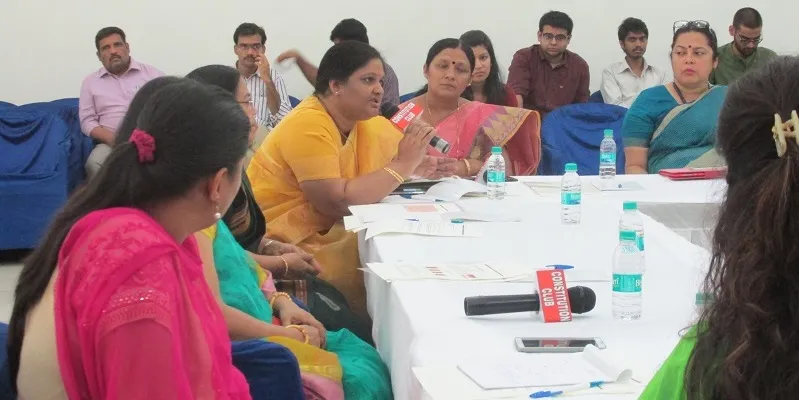From Harvard to working with MPs in rural constituencies, Rwitwika Bhattacharya paves the way for today’s youth
Though she hails from Kolkata, Rwitwika Bhattacharya grew up in Delhi till she was 10 years old. The rest of her schooling and higher education was in Florida, where she and her brother stayed with their uncle and aunt. Their summer holidays would be spent back home in India with their parents. It is probably this childhood, that was split between two countries, which gives Rwitwika a unique perspective – that of an insider, who is also an outsider.
Rwitwika reminisces, “I would accompany my father to meetings and given that he is a politician, I got used to visiting MPs and ministers with him. Thus, I found my interest in governance early on. I think a lot of what I do at Swaniti is rooted in that childhood experience.”
Rwitwika had worked for an American senator, Katherine Harris, in her constituency while she was still in school, and saw first-hand the amount of help a senator gets for the work in his or her constituency, unlike their Indian counterparts. Swaniti is an NGO founded by the 29-year-old Rwitwika that focusses on providing end-to-end solutions to MPs and MLAs on development issues by taking on a three-pronged approach:
- They carry out research on priority issues;
- The team travels to constituencies to oversee implementation; and
- They also develop knowledge products to aid MPs in their development agendas.
It is not surprising given the scale and scope of her organisation that Rwitwika has been featured in Forbes India 30 under 30 list.

The Swaniti idea
Rwitwika completed her undergraduate degree in Political Sciences and Economics from Wake Forest University and her Masters’ in Public Policy from Harvard University. Rwitwika says, “Back in 2009, as a student in graduate school, I was excited to watch the general elections. My friends and I started talking about the electoral process and how so many of us were keen to contribute to strengthening governance in India. There were too few channels of entry for young Indians to work with elected officials in supporting them with governance.” The bureaucrats, who don’t have any direct connect with constituents, have been the ones expected to support the elected representatives. Thus, Swaniti was founded as a project in 2009.
Rwitwika worked at the World Bank in the Washington DC office and UNFPA in the Delhi office before restarting Swaniti as a full-fledged non-profit organisation in 2012. Today, with a core team of 22 members, Swaniti is supported primarily by high net worth individuals and foundations. Some of their benefactors include the Tata Trust, Azim Premji Philanthropic Initiatives and Rohini Nilekani.
The impact

The Swaniti team has worked with the MP from Hamirpur in Himachal Pradesh to deliver skills development programmes, and with the MP from Kendrapara in Odisha to launch mobile health vans. Leveraging the MPs’ authority allows for faster implementation and smoother transition to long-term governmental solutions for socio-economic challenges. The result is upliftment of those at the base of the socio-economic pyramid.Rwitwika says that her team diligently tracks programmes to learn and improve while also assessing the programme’s impact. Their work through more than 100 MPs has positively impacted at least 65,000 lives. Additionally, their work in 15 MLA constituencies has improved 7,000 lives. They have worked with 4 CM’s offices to initiate or accelerate developmental programmes worth Rs 70 crore.
Another example is their programme in Barrakpore, West Bengal, where MP Dinesh Trivedi reached out to the Swaniti team to convey his concern about the dismal health conditions of workers in jute mills factories. Swaniti helped improve work conditions for these workers and initiated a policy change.
Indian Women Parliamentarians’ Forum (IWPF)
Swaniti has initiated the Indian Women Parliamentarians’ Forum (IWPF) to bring together women leaders from different parties and regions with the goal of fostering healthy discussions and debates around women’s issues. It aims to leverage the experience of women working in the public space to build an environment of mentorship amongst female Parliamentarians and support for future women leaders.

Rwitwika explains,
In 1967, for every woman MP, there were one crore female citizens, whereas in 2014, that ratio had grown to one woman MP for every 10 crore female citizens. As women’s issues continue to receive tremendous attention, it is important for Women Parliamentarians to form a united forum and discuss critical issues.
Making a difference
Rwitwika has published two books Frontiers in Development Policy and Primer on Labor Markets and is currently working on the third, Making of a Politician that is to be published by Harper Collins later this year. It focusses on how young people can make a difference in Indian politics.
Rwitwika believes that young people can help rectify structural inefficiencies in our system. She defines a strong woman as someone who has a strong sense of purpose about what she wants to do, has confidence in herself, and is supportive of other women. With the work that she is doing, Rwitwika hopes she can make a positive change in how the educated youth view politics and lead to their increased involvement in governance.







